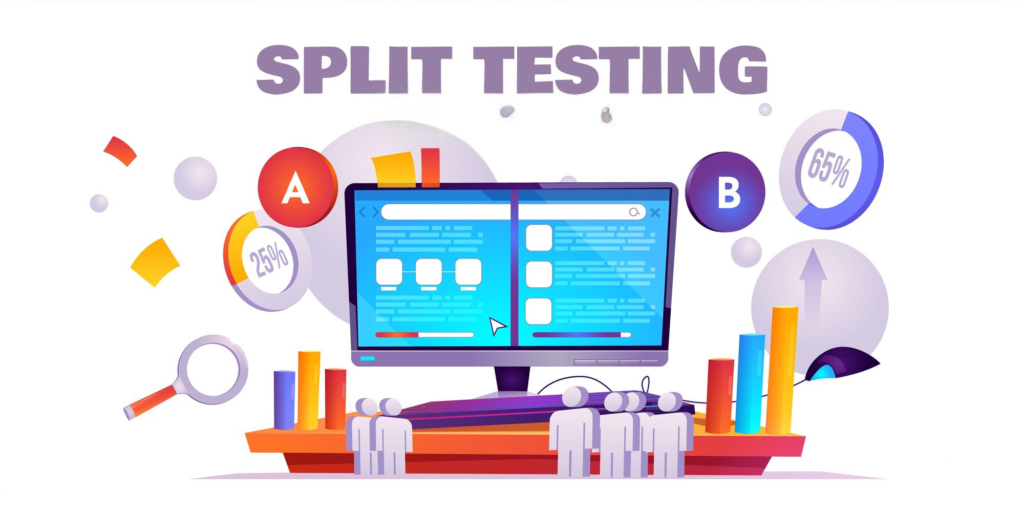Top 25 SEM Interview Questions and Answers
Search Engine Marketing (SEM) is a vital part of digital marketing, enhancing website visibility in search engine results through paid ads. Preparing for an SEM interview means mastering key concepts, tools, and strategies. PrepMagic’s 'Top 25 SEM Interview Questions and Answers' is a powerful guide designed for candidates eager to shine in their interviews. Covering essentials like keyword research, ad campaigns, bidding, and quality scores, as well as advanced tactics like A/B testing, conversion tracking, and competitor analysis, this guide helps build the confidence and expertise to optimize campaigns effectively. Perfect for those aiming to stand out in the fast-paced world of digital marketing, this guide is your key to landing a successful SEM role.
Looking for specialised interview questions?
1. What is SEM?
 Answer: SEM, or Search Engine Marketing, is a digital marketing strategy focused on increasing a website’s visibility on search engine results pages (SERPs). Unlike SEO, which relies on organic efforts, SEM typically involves paid advertising, such as pay-per-click (PPC) ads, to promote websites or products to relevant audiences. SEM enables businesses to appear at the top of search results almost instantly, targeting specific keywords to reach potential customers actively searching for related products or services. This approach helps drive targeted traffic, increase conversions, and improve brand visibility in a competitive online landscape.
Answer: SEM, or Search Engine Marketing, is a digital marketing strategy focused on increasing a website’s visibility on search engine results pages (SERPs). Unlike SEO, which relies on organic efforts, SEM typically involves paid advertising, such as pay-per-click (PPC) ads, to promote websites or products to relevant audiences. SEM enables businesses to appear at the top of search results almost instantly, targeting specific keywords to reach potential customers actively searching for related products or services. This approach helps drive targeted traffic, increase conversions, and improve brand visibility in a competitive online landscape.
2. How does SEM differ from SEO?
Answer: SEM drives traffic through paid search results, leveraging tools like Google Ads to position your ads on search engine results pages instantly. In contrast, SEO (Search Engine Optimization) focuses on boosting organic visibility by optimizing content, strategically using keywords, and implementing non-paid techniques. Both are essential for a well-rounded search marketing strategy
3. What are PPC campaigns?
Answer: Pay-Per-Click (PPC) campaigns are a powerful SEM strategy where advertisers pay only when their ad is clicked. This approach lets businesses drive targeted traffic to their site instantly, giving them a faster alternative to organic growth and helping them reach potential customers exactly when they’re searching.
4. What is the Quality Score in Google Ads?
Answer: Quality Score is a key Google Ads metric that gauges the relevance and quality of your keywords and ads. Determined by factors like click-through rate, ad relevance, and landing page experience, it influences both your ad rankings and cost-per-click, helping you optimize campaign performance and spend effectively.
5. Explain the concept of Ad Rank.

Answer: Ad Rank plays a crucial role in SEM interview questions, determining where your ad appears on search engine results pages. This rank is calculated based on your bid amount, Quality Score, and the expected impact of ad formats and extensions. Understanding how Ad Rank works is essential for optimizing ad visibility and performance in paid search campaigns.
6. What are Negative Keywords?
Answer: Negative keywords play a crucial role in refining your ad targeting by preventing your ads from appearing for irrelevant or unwanted search queries. By strategically adding negative keywords, you can effectively filter out unqualified traffic, reduce wasted ad spend, and ensure your ads reach a more relevant, high-intent audience. This not only boosts your campaign’s efficiency but also helps maximize your return on investment.
7. How do you perform keyword research for SEM?
Answer: Mastering keyword research is essential for anyone preparing for SEM interview questions. It involves finding relevant keywords that potential customers are likely to search. Tools like Google Keyword Planner, SEMrush, and Ahrefs are invaluable for discovering high-impact keywords, analyzing competition, and estimating bids, all of which are crucial skills for SEM success.
8. What are ad extensions?
Answer: Ad extensions are powerful tools that enrich your ads with extra information, making them more appealing and informative for users. By adding elements like site link extensions, call extensions, and location extensions, you provide users with more reasons to click. These extensions not only increase the visibility of your ads but also improve their relevance and effectiveness, helping drive higher engagement and conversions.
9. What is Landing page?
Answer: A landing page is a dedicated web page where visitors arrive after clicking on an ad. For SEM success, especially in tackling SEM interview questions, a well-crafted landing page should align with the ad’s content, provide a seamless user experience, and include a clear call-to-action to boost conversions effectively.
10. How do you measure the success of an SEM campaign?
 Answer: Understanding key performance indicators (KPIs) like click-through rate (CTR), cost-per-click (CPC), conversion rate, return on ad spend (ROAS), and ROI is essential for SEM success. In SEM interview questions, these metrics often come up to evaluate a candidate’s ability to assess campaign effectiveness and profitability. Mastering these KPIs can help demonstrate your knowledge of SEM campaign optimization and performance tracking.
Answer: Understanding key performance indicators (KPIs) like click-through rate (CTR), cost-per-click (CPC), conversion rate, return on ad spend (ROAS), and ROI is essential for SEM success. In SEM interview questions, these metrics often come up to evaluate a candidate’s ability to assess campaign effectiveness and profitability. Mastering these KPIs can help demonstrate your knowledge of SEM campaign optimization and performance tracking.
11. What is Google Ads auction?
Answer: The Google Ads auction determines which ads are shown on the search results page and where they appear. This auction happens every time a user performs a search, and it evaluates various factors to decide the ad placement. Key elements include the bid amount, the Quality Score, and the relevance of the ad to the search query. Together, these factors ensure that the most relevant and high-quality ads are displayed to users, providing a better search experience for both advertisers and consumers.
12. What is remarketing in SEM?
Answer: Remarketing is a powerful SEM strategy often covered in SEM interview questions. It targets users who have visited your website but didn’t convert, displaying relevant ads to them as they browse other sites. This approach re-engages potential customers, keeping your brand top of mind and increasing conversion chances effectively.
13. Explain the concept of Cost-Per-Click (CPC).
Answer: Cost-per-click (CPC) refers to the amount an advertiser pays each time their ad is clicked. As a key metric in pay-per-click (PPC) campaigns, CPC plays a vital role in helping advertisers manage their budgets effectively. By understanding CPC, advertisers can assess the cost-effectiveness of their ads, optimize their strategies, and ensure they’re getting the best return on investment (ROI) for their marketing efforts.
14. What are the different match types in Google Ads?
Answer: Google Ads provides a variety of keyword match types to help you control how your ads appear in search results. These include broad match, phrase match, exact match, and broad match modifier. Each match type determines how closely a user’s search query must align with your selected keyword in order for your ad to be eligible to show. By understanding these match types, you can optimize your campaign for more precise targeting, ensuring your ads reach the right audience at the right time.
15. How do you optimize an SEM campaign?
Answer: Optimizing an SEM campaign involves regularly analyzing performance data, adjusting bids, refining keywords, improving ad copy, and enhancing landing pages. This continuous process helps maximize ROI and achieve better results.
16. What is the importance of A/B testing in SEM?
Answer: A/B testing involves comparing two versions of an ad, landing page, or other campaign elements to determine which performs better. It helps identify the most effective strategies, improving overall campaign performance and ROI.

17. What is conversion tracking?
Answer: Conversion tracking is a tool in Google Ads that tracks the actions users take after clicking on an ad, such as making a purchase or filling out a form. It provides valuable insights into the effectiveness of ads and helps optimize campaigns for better results.
18. How does bid strategy impact SEM campaigns?
Answer: Bid strategy determines how you pay for users’ interactions with your ads. Common strategies include manual CPC, automated bidding, target CPA (Cost-Per-Acquisition), and target ROAS (Return on Ad Spend). Choosing the right strategy impacts campaign performance and budget efficiency.
19. What are the benefits of using Google Ads?
Answer: Google Ads offers several benefits, including precise targeting, measurable results, cost control, and access to a vast audience. It allows businesses to reach potential customers at the right time with relevant ads, driving traffic and conversions.
20. How do you handle budget allocation in SEM?
Answer: Budget allocation in SEM involves distributing funds across campaigns, ad groups, and keywords based on performance and business goals. Regularly reviewing and adjusting budgets ensures that the most effective areas receive adequate funding for optimal results.
21. What is the importance of ad relevance?
Answer: Ad relevance measures how closely an ad matches the searcher’s intent and query. High ad relevance leads to better Quality Scores, lower CPCs, and improved ad positions, ultimately enhancing the effectiveness of your SEM campaigns.
22. What is the role of landing page experience in SEM?
Answer: Landing page experience is a factor in Quality Score and affects ad performance. A good landing page experience involves relevant content, fast load times, and easy navigation, leading to higher conversion rates and better overall campaign results.
23. How do you use analytics in SEM?

Answer: Analytics tools like Google Analytics provide insights into user behavior, campaign performance, and conversion data. By analyzing these metrics, you can make informed decisions, optimize campaigns, and achieve better ROI.
24. What are the common challenges in SEM?
Answer: Common SEM challenges include keyword competition, managing budgets, maintaining ad relevance, and keeping up with platform changes. Addressing these challenges requires continuous learning, testing, and optimization to stay competitive and achieve desired results.
25. How do you stay updated with SEM trends?
Answer: To stay ahead in the ever-evolving world of SEM, it’s crucial to actively engage with the latest industry insights. This can be achieved by regularly reading reputable blogs, joining webinars, attending conferences, and connecting with professional communities. Embracing continuous learning and staying adaptable to new strategies and tools will ensure your SEM expertise remains sharp and relevant, helping you leverage the most effective techniques to drive results.
By practicing these common SEM interview questions and tailoring your answers to reflect your hands-on experience and problem-solving skills, you’ll be better equipped to impress your potential employers. Keep honing your SEM expertise, stay updated with the latest developments, and approach each interview as an opportunity to demonstrate your passion for digital marketing. Best of luck in your SEM career journey!
Related Topics: